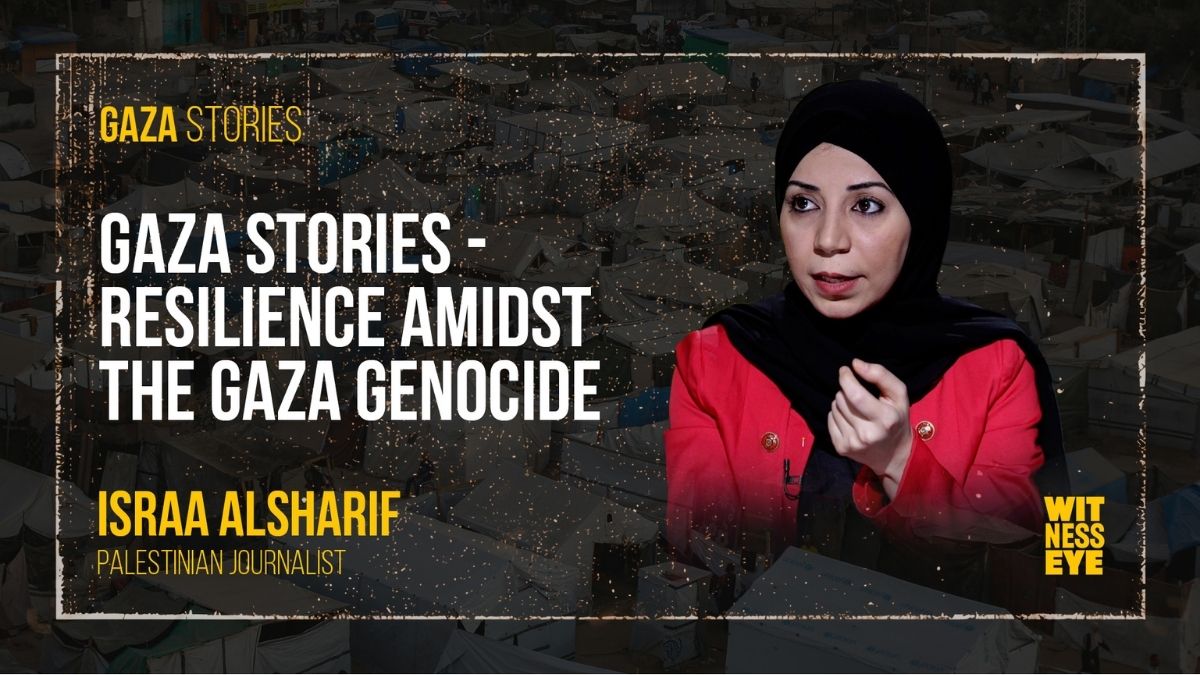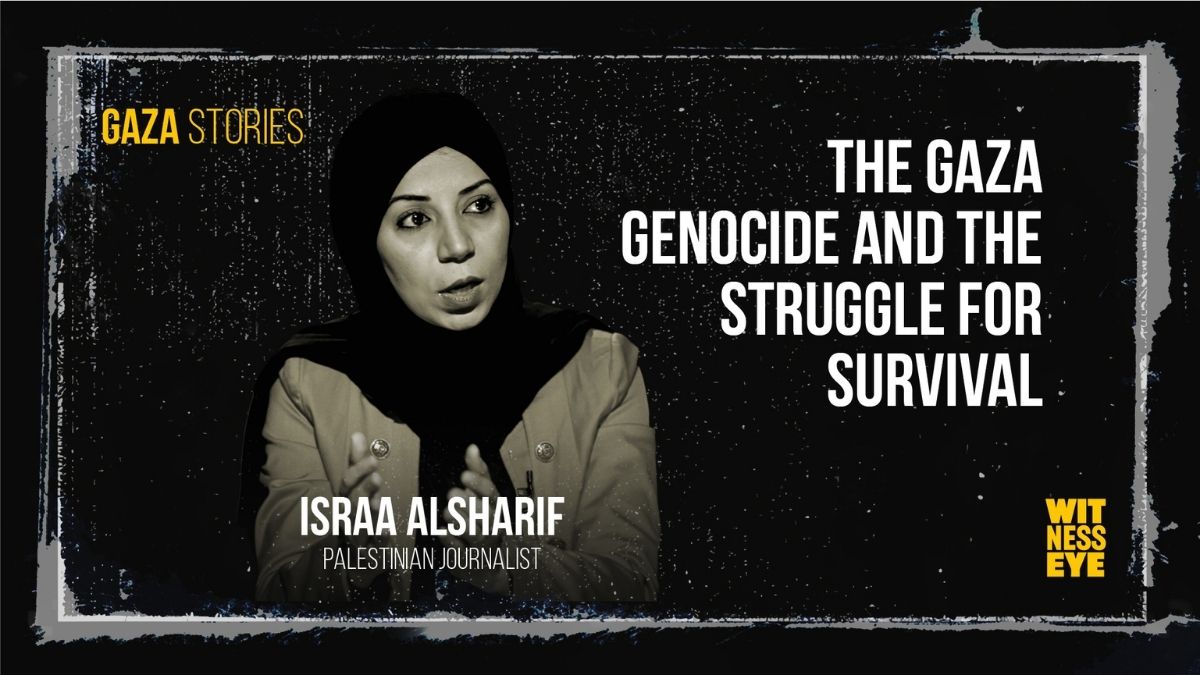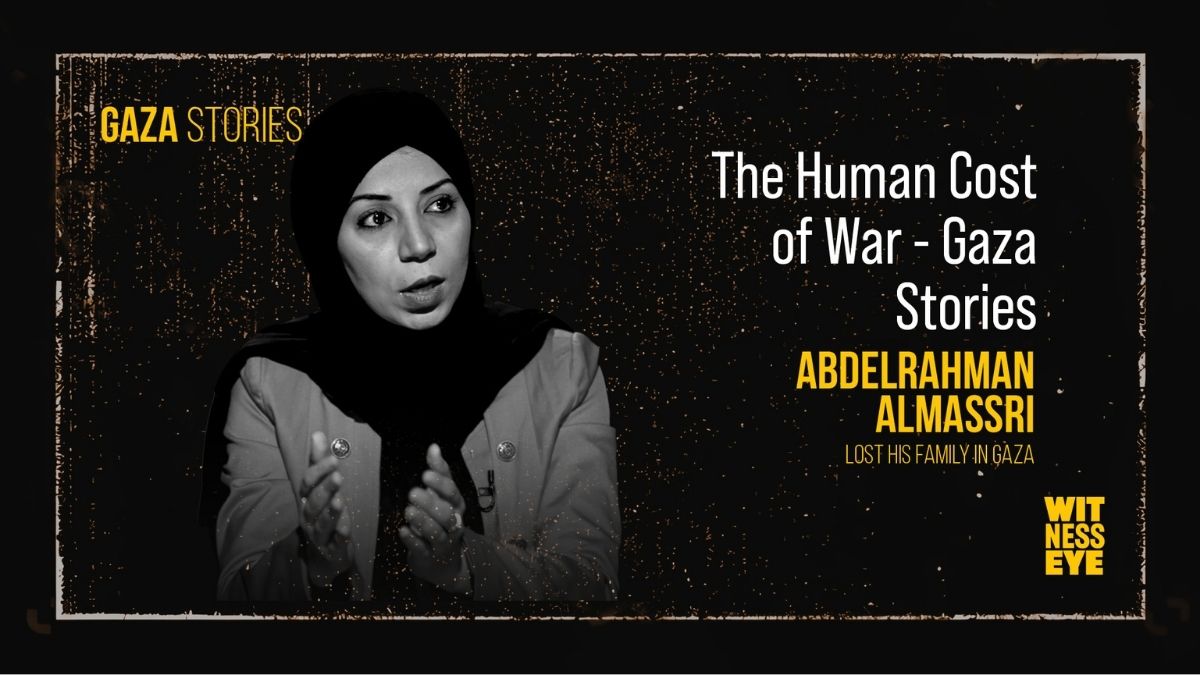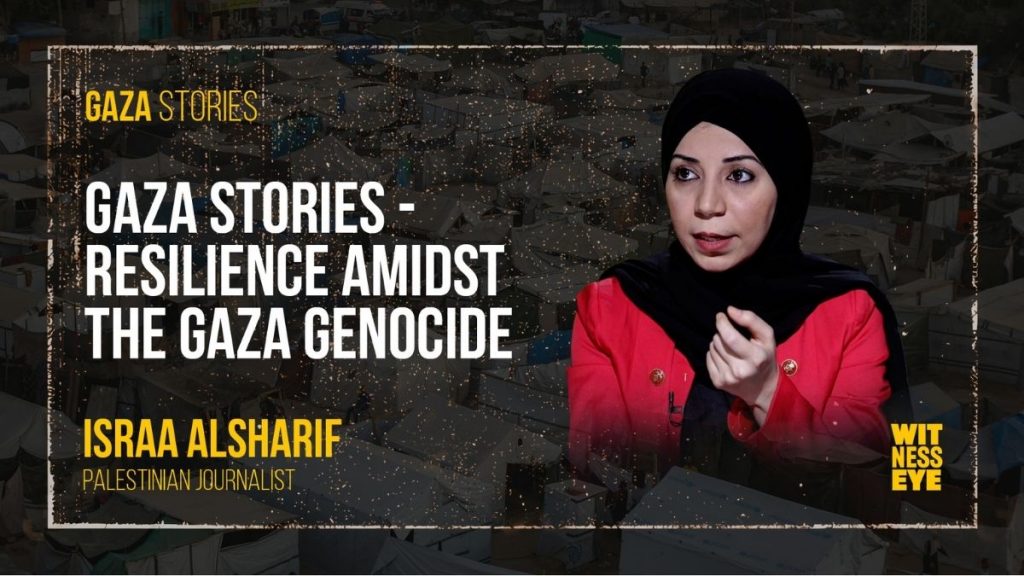
Israa Al-Sharif, a Palestinian media personality, speaks about her family’s enduring resilience amidst the horrors of the Gaza War. Her family, deeply rooted in the northern Gaza region, particularly in Jabalia, has experienced unimaginable hardship, including the tragic loss of family members and the constant destruction of their homes. Despite the devastation, Israa and her family refused to leave. “We remain in Gaza because we are part of its history, part of its legacy. This is our land, and we will not allow the occupation to erase our identity,” Israa says. Their refusal to leave has made them a symbol of defiance and survival in the ongoing Gaza Stories, representing the unyielding spirit of Gaza’s people.
The ongoing Gaza Genocide has torn through Gaza, yet Israa’s family remains strong, refusing to succumb to the pressures of displacement. “We have witnessed the worst of war, yet we remain in Jabalia. It’s not just about survival; it’s about defying the occupation,” she shares. This commitment to staying in Gaza, despite the destruction, reflects the broader Gaza Stories that continue to emerge from the conflict. The legacy of her ancestors, who fled Majdal (now Ashkelon) during the 1948 Nakba and settled in Jabalia, remains unbroken. Through their trials, Israa’s family stands as a testament to the enduring resilience of Gaza’s people, the stories of survival that continue to shape the future of Gaza.

The Gaza Genocide and the Struggle for Survival
The Gaza Genocide, which continues to devastate the lives of countless Palestinians, has deeply affected Israa and her loved ones. The family’s story is one of resilience in the face of unimaginable suffering. During the most intense phases of the conflict, Israa’s two brothers were martyred. “This war has taken so much from us,” Israa says. “My brothers, who were always there for me, were martyred in Jabalia, our home. The impact of losing them has been unbearable, but we have no choice but to keep going. We refuse to be part of the occupation’s plans. We stayed, even when the conditions were unbearable. The destruction around us was monumental, but our resolve remains unbroken. Staying here is not just an act of survival but a defiance against the occupation’s efforts to erase Gaza’s identity.”
The trauma from this ongoing conflict is a heavy burden, but it is also a story that needs to be told — the stories of Gaza. The Gaza Stories of survival, loss, and resilience are shared not only by Israa but by countless families like hers, who have experienced the depths of this suffering. Despite the violence and the destruction, Gaza’s story, and their stories, will endure, as they continue to survive in defiance of the genocide. Israa’s narrative is part of the larger collective Gaza Stories, a testament to the strength of the people in the face of adversity. This story serves as a reminder of the deep human cost of the Gaza Genocide, while also honoring the survival and resilience that continues to define Gaza.
The Devastating Impact of the Gaza War on Civilians
As the war escalated, the violence and destruction reached unprecedented levels. “The bombings, the constant sieges, the loss of life—it was unimaginable,” Israa reflects.
“At one point, we were cut off from communication for over three months. I couldn’t reach my family, and I feared the worst. I followed the news, hoping to hear any word about my family, even if it was tragic.”
During this period of isolation, Israa found herself unable to help those she loved the most. “It felt like I was powerless. I couldn’t provide them with food, water, or safety. I couldn’t even ensure that they were safe. It was the worst kind of feeling, knowing that the people you love are in danger, but you can’t do anything about it.” – Gaza Stories
The situation in northern Gaza became increasingly dire. The bombardment of civilian infrastructure, such as homes, schools, and hospitals, only intensified. “Jabalia became a target. Our neighborhood, like many others, was bombed. And not just once—there were repeated incursions, leaving behind nothing but rubble,” Israa says with a heavy heart.
She describes how her family faced extreme conditions, including shortages of food, water, and medicine.
“There were times when we didn’t know where the next meal would come from. My father, who is elderly, would go out for hours just to bring back water—water that wasn’t even clean enough to drink.”
The lack of resources, coupled with the constant threat of bombings and airstrikes, made survival even more challenging. “The destruction of civilian infrastructure made everything harder. There were no markets to buy food, and even the basic necessities like water were scarce. People had to ration whatever little they could find. It was a daily fight to stay alive.”
Gaza’s Struggle: The Trauma of War and Displacement
For Israa’s family, staying in Gaza has meant enduring unimaginable pain. “My brothers’ martyrdom was just the beginning. The impact on my family has been profound, especially on my father and mother. My father has lost so much—his children, his peace, his health. But he remains in Gaza, just as we all do, because this is our land.” Israa’s father, who had once left Gaza for Saudi Arabia, made the decision to return after the initial displacement. “My father made it clear that no matter what happened, he would stay in Gaza. He had enough of exile,” Israa recalls. “And even after all this, he continues to stand firm in the face of such overwhelming loss.”
The war has also affected the mental health of many in Gaza, especially children. Israa talks about her nephews, who were deeply affected by the violence around them. “One of my nephews, who lost his father, still refuses to believe his father is gone. He insists that his father went to Turkey to get money and rebuild their house. His mother had to take him to the grave to explain the truth, but he couldn’t accept it. His reaction broke my heart. He kept hitting his head on the ground, screaming, not understanding why his father isn’t coming back.”
She also describes how the children, who should be experiencing the joys of childhood, have instead been thrust into a world of war. “One of my nephews, who lost his father, started to feel fatherly feelings toward my own father. He would cry whenever his grandfather was away from him, as though he was trying to fill the void left by his own father’s absence.”

The Human Cost of War – Gaza Stories
Israa’s family is now responsible for raising her nephews and nieces, who have lost their parents in the ongoing conflict. “Raising five orphans is not an easy task. My elderly parents, who have already been through so much, now carry the responsibility of raising these children. It’s heartbreaking to see how much they’ve endured, yet they never give up,” she explains.
The trauma of losing both parents in such a brutal manner leaves scars that may never heal. “Even though we try to give them all the love and care we can, there’s no replacing the loss of a parent. And in Gaza, many children are left without parents. They are raised in a war zone, surrounded by fear, hunger, and death.”
Gaza’s orphans like Israa’s nieces and nephews are not only grieving the loss of their parents but are also forced to live without basic human rights. “These children will carry the scars of this war for the rest of their lives,” Israa says solemnly. “In Gaza, the most vulnerable are often the children, and the war crimes being committed against them are unacceptable.”

Gaza’s Path to Justice: The International Community’s Role
Amidst the ongoing genocide, Israa is hopeful that international justice will eventually prevail. “We know that the world is watching, and we hope that the international community will take action. The evidence of war crimes is overwhelming, and it’s time for those responsible to be held accountable,” she says with conviction.
Despite the international pressure, the lack of accountability for the perpetrators of these atrocities remains a major obstacle. “The international community must act to stop this violence. The world cannot remain silent while Gaza is destroyed. We need justice for the victims of the Gaza Genocide, and we need it now.”
Israa believes that the efforts of organizations like the Gaza Tribunal and other humanitarian bodies are vital in bringing justice to the people of Gaza. “International law must be enforced, and those who commit war crimes in Gaza must face the consequences. The world must stand with us, not just in words but in concrete actions.”

Gaza’s Future – Gaza Stories
Despite the overwhelming challenges, Israa remains hopeful for the future of Gaza. “We will rebuild, and we will survive. Gaza has been through so much, but it is a place of incredible resilience. We will not be erased, and our story will continue to be told,” she says with determination. Gaza’s future remains uncertain, but the people of Gaza, like Israa and her family, continue to resist, to survive, and to demand justice. The journey for accountability is long, but with each passing day, the voices of the people of Gaza grow louder. This article is an in-depth look at Israa Al-Sharif’s personal experiences and her family’s resilience in the face of the ongoing Gaza Genocide. It highlights the ongoing suffering, loss, and hope amidst the brutal war. For more information on the ongoing situation, you can explore additional resources like Gaza War and War Crimes Documentation.
Now, hear the testimony of Israa Al-Sharif in her own words—Palestinian media personality, witness, survivor—carrying Gaza’s grief, memory, and unyielding call for justice into the record of history.
